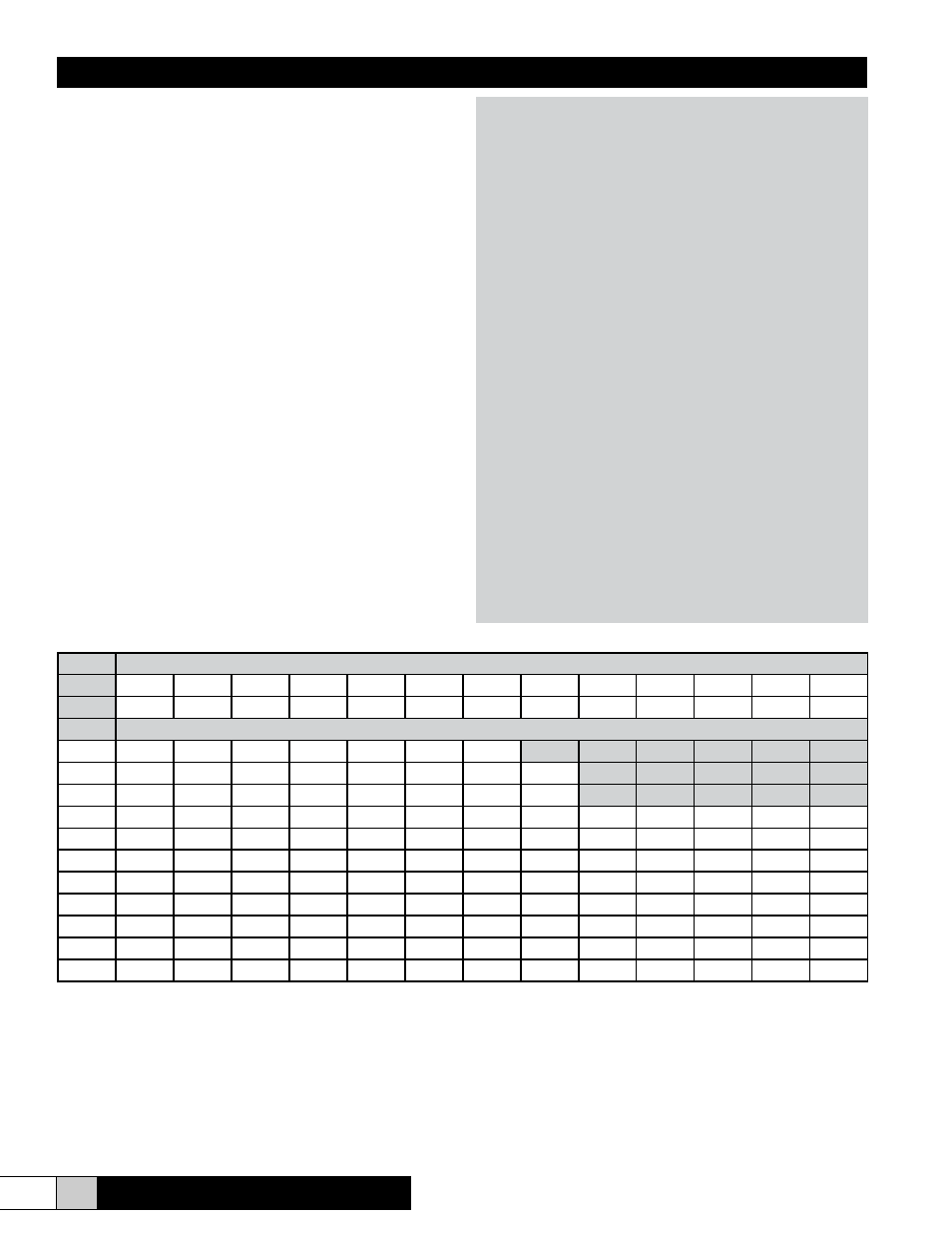Herrtronic, Md series – Herrmidifier Herrtronic MD User Manual
Page 8

Herrtronic
®
MD Series
I n s t a l l a t i o n , O p e r a t i o n , & M a i n t e n a n c e M a n u a l
8
www.herrmidifier-hvac.com
Supply Power (See Electrical Characteristics Table Below)
1. Ensure that adequate service is available to carry 125% of
rated amp level.
2. Field wiring of the main power supply is connected directly
to the contactor (single contactor units) or to a power distri-
bution block (multiple contactor units) located in the electri-
cal compartment. A ground lug is provided for the ground
wire.
3. Install external overcurrent protection and provide wiring in
accordance with the NEC, state and local code.
4. Power supply must be “clean”; free of spikes, surges and
sags; -15% to +10% of Nominal. Ground should be a true
earth ground.
Steam Distribution for Ducted Systems
Each steam cylinder requires at least one outlet for steam via
a duct distributor or Room Distribution Unit. (See RDU supple-
ment for Room Distribution Unit)
Steam Distributor Pipes
Herrmidifier supplies stainless steel duct distributor pipe(s) for
use in injecting pure steam into ducts. Refer to Figure 3, 4, or 5
for proper placement. A minimum of 3’ clearance downstream
is required for most applications. However, differing pyschro-
metric conditions may require a greater or lesser steam absorp-
tion distance. Consult the factory if you have any questions or
need to exchange your standard distribution system for a rapid
absorption CS-Series Distribution system.
NOTE
• The rubber steam hose carries steam to the distributor pipe
and condensate back to the unit. It must have an 8% (1”
per foot) pitch back to the unit. Support the steam hose so
it will maintain the proper pitch when in operation or at rest.
• If any low spots are in the steam line or the unit is mounted
higher than the distribution system, spitting may occur from
the steam distribution pipes. A condensate separator (EST-
250) is available from the factory. (See Fig. 6)
• If you must split the discharge of one steam outlet into two
ducts with the same static pressure, a “Y” connector (EST-
255) is available from the factory. The length of steam hose
after the “Y” connector must be the same for equal distribu-
tion of steam. (See Fig. 8)
• Mount the unit as close to the distribution pipe as possible.
Use 1 ½” Type L insulated copper pipe whenever the length
of run exceeds 20 feet. Do not exceed a 30 foot run as the
capacity of the unit will be decreased by as much as 15%
and the increased static pressure could cause problems
with the fill system.
• Maximum duct static pressure: 5” MDM units, 7” MDS and
MDD units.
• Internal duct insulation should be removed in the “bulk
evaporation” zone (Consult factory representative).
• Steam holes in the distribution pipe are located 2” from
mounting plate and designed for a maximum duct wall
thickness of 1”. Consult factory if special hole locations
are required.
• Do not mount the standard distribution pipe in a vertical
downflow or vertical position in a horizontal flow system.
Special pipes are available, consult the factory.
Steam Output
Lb/hr
5
10
15
20
25
30
40
50
60
70
80
90
100
Kg/hr
2.3
4.5
6.8
9.1
11.4
13.6
18.2
22.7
27.2
31.8
36.3
40.9
45.4
Voltage
Electrode Current (amps)
208/1
8.0A
16.0A
24.0A
32.0A
40.0A
48.0A
64.0A
240/1
6.9A
13.9A
20.8A
27.8A
34.7A
41.6A
55.5A
69.4A
277/1
6.0A
12.0A
18.0A
24.0A
30.1A
36.1A
48.1A
60.1A
208/3
4.6A
9.2A
13.9A
18.5A
23.1A
27.7A
37.0A
46.2A
55.5A
64.7A
73.9A
83.2A
92.4A
240/3
4.0A
8.0A
12.0A
16.0A
20.0A
24.0A
32.0A
40.1A
48.1A
56.1A
64.1A
72.1A
80.1A
380/3
2.5A
5.1A
7.6A
10.1A
12.6A
15.2A
20.2A
25.3A
30.4A
35.4A
40.5A
45.5A
50.6A
440/3
2.2A
4.4A
6.6A
8.7A
10.9A
13.1A
17.5A
21.8A
26.2A
30.6A
35.0A
39.3A
43.7A
460/3
2.1A
4.2A
6.3A
8.4A
10.4A
12.5A
16.7A
20.9A
25.1A
29.3A
33.4A
37.6A
41.8A
480/3
2.0A
4.0A
6.0A
8.0A
10.0A
12.0A
16.0A
20.0A
24.0A
28.0A
32.0A
36.0A
40.1A
575/3
1.7A
3.3A
5.0A
6.7A
8.4A
10.0A
13.4A
16.7A
20.1A
23.4A
26.7A
30.1A
33.4A
600/3
1.6A
3.2A
4.8A
6.4A
8.0A
9.6A
12.8A
16.0A
19.2A
22.4A
25.6A
28.8A
32.0A
KW = .333 X Lbs/Hr
Amps(1Ph) = KW X 1000 / (Voltage)
Amps(3Ph) = KW X 1000 / (Voltage X 1.732)
Min. Circuit Ampacity = 1.25 X Rated Electrode Current (Note: with RDU add .5 Amps @ 208/240 Volts or add .25 Amps @ 480 Volts)
Minimum Circuit Ampacity determines wire size (AWG)
